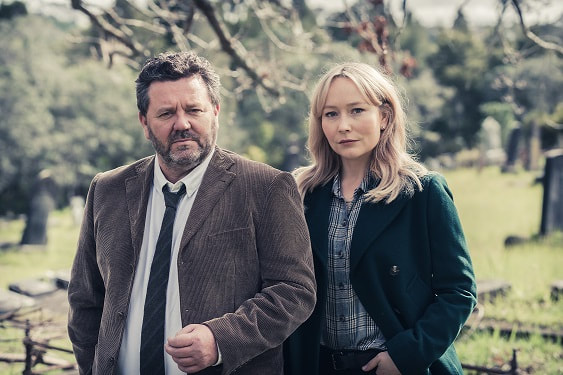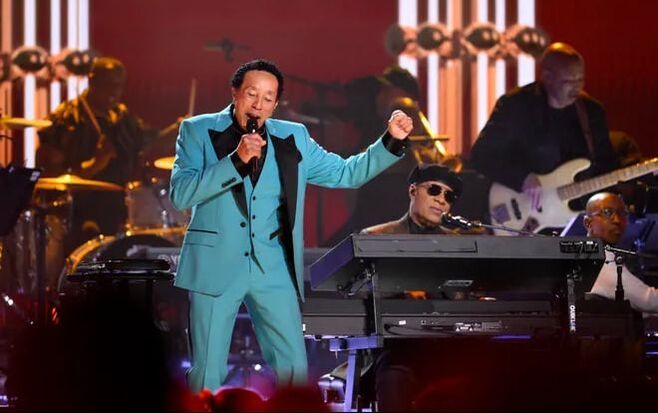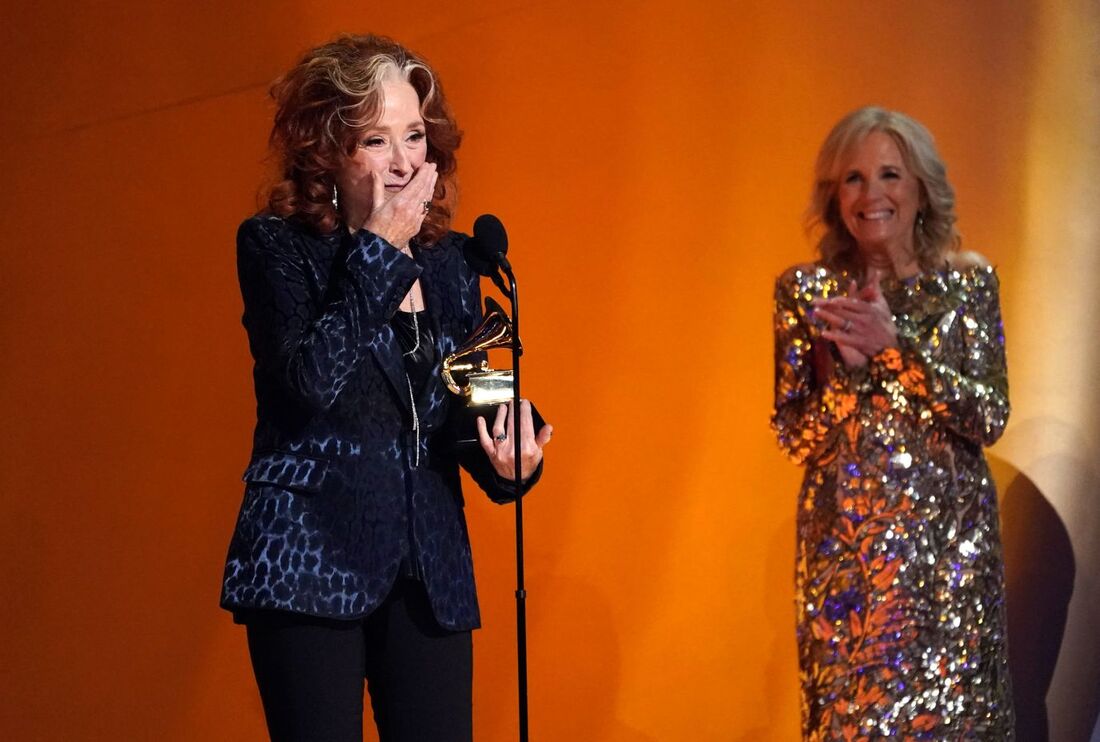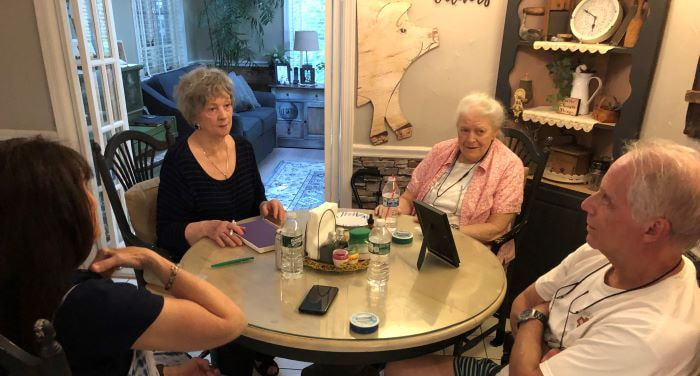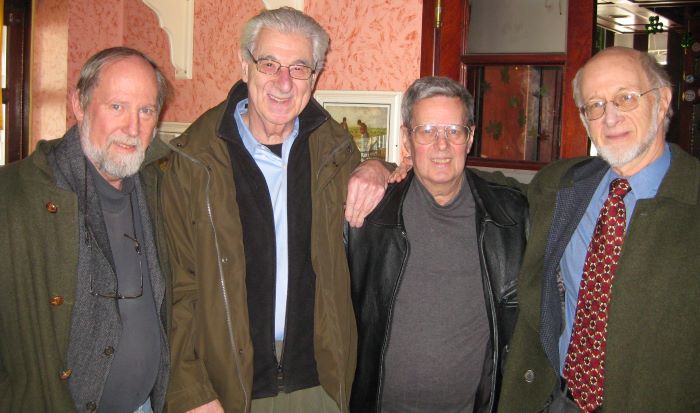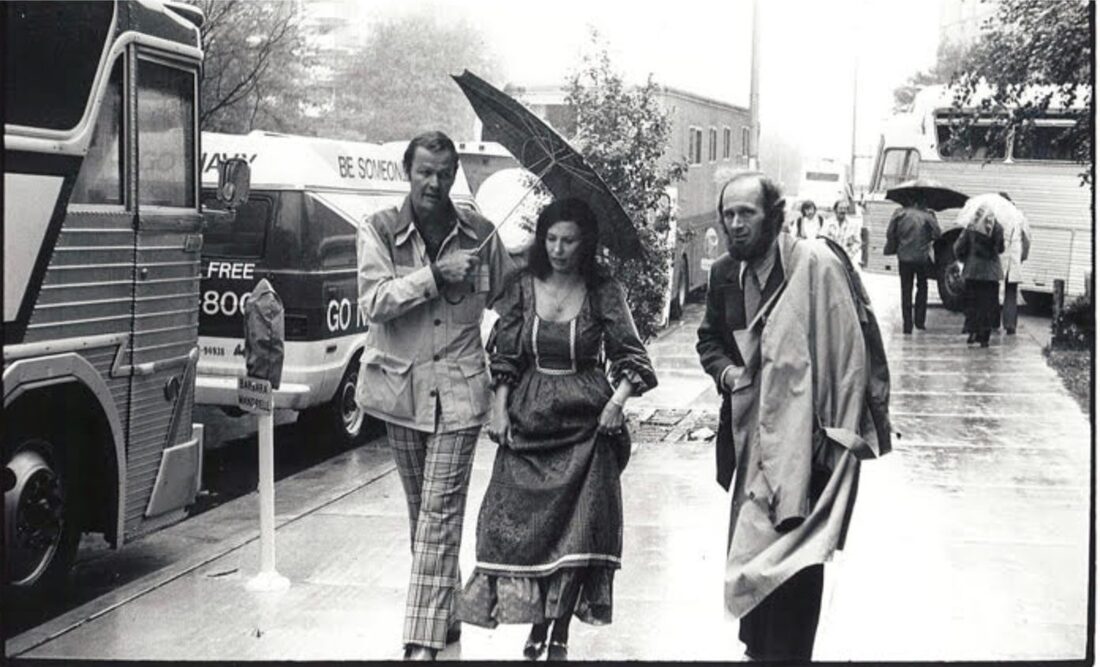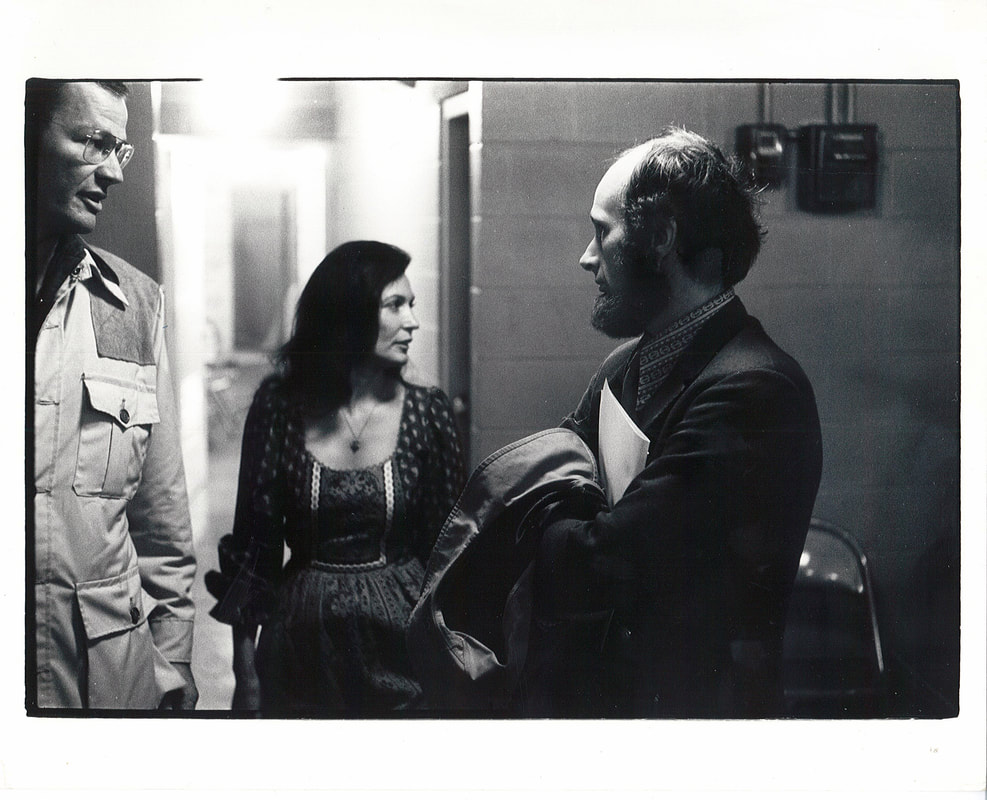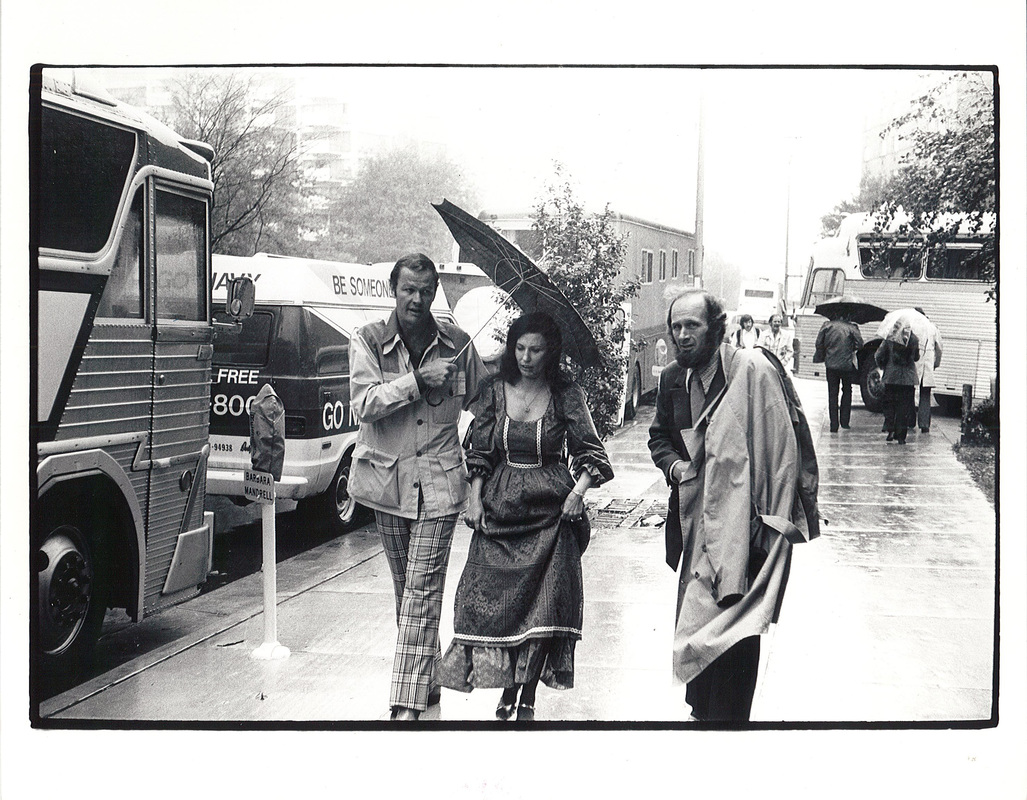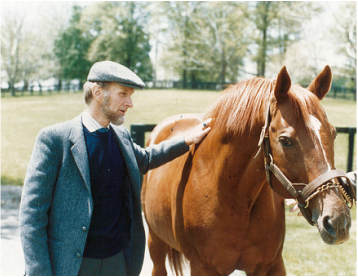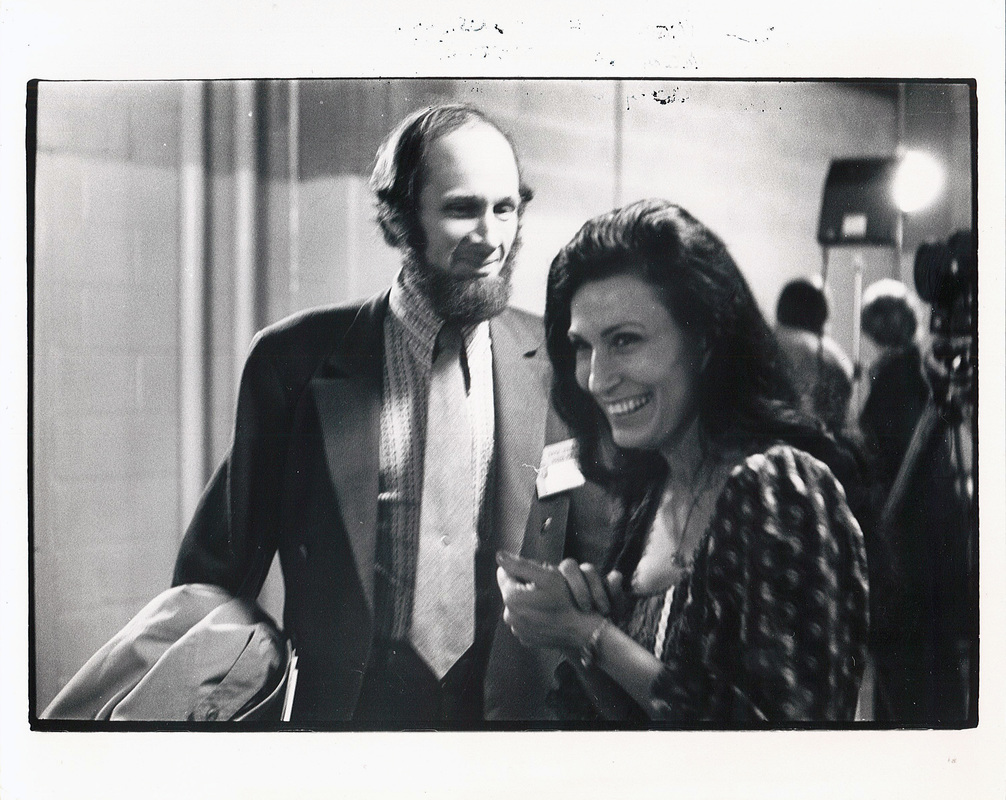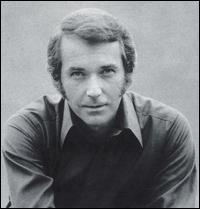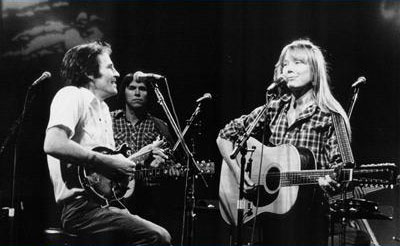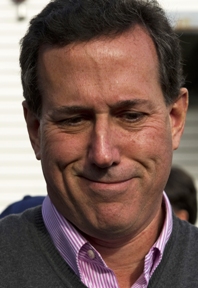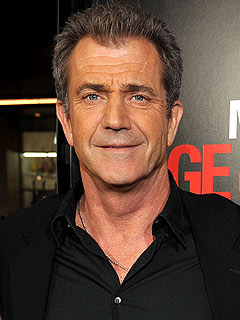|
Lately, some friends have been asking what I'm doing. My answer is, I've been trying to pitch in more -- plus keep in touch with family and friends -- plus follow the Mets. That does not leave much time for feeding my personal beast on the Web. *** We've also been discovering the little treasures that pop up on the two public channels in our area -- Channel 13 and WLIW21. For a year or two, we were caught by a Swedish series, "Before We Die" -- Stockholm cops, Euro crime family, tangled family ties -- that gave me chills I had not experienced since "The Sopranos." (Later, a British version of "Before We Die" proved to be a gabby failure.) This past winter we got hooked on a French series, "Astrid et Raphaëlle," about a Paris cop who notices that an office worker is autistic, and has the ability to notice and decipher clues, physical and psychological. Before long, the inspector is taking Astrid along on cases -- relying on her intuition. I often wonder how Astrid, the French-Norwegian actress, Sara Mortensen, manages to change gears from her introverted persona when she goes back into the real world. *** As a former news reporter, I am fascinated by the police methods in "Before We Die," and "Astrid et Raphaëlle." And that brings me to "The Brokenwood Mysteries," in a small New Zealand town that seems to have more than its share of characters -- golfers, actors, a snarky young Maori guy -- and an extraordinarily high murder rate. Good grief, we once visited friends in Wellington for a week, and NZ seemed like the most civil place in the world. The Brokenwood series began a decade ago, without my knowing, and at some point there was a new inspector with his own dark side-- Niall Rea, who makes no secret of his past divorces (three? five?) and he admits he deserved every one of them. He also has well-developed detective skills, and quickly makes the judgment that the local assistant, played by Fern Sutherland, is smart and brave, and he treats her with respect. I like the New Zealand police series whereas I scorn the British detective series on the tube because the folksy bumpkin detectives are always explaining things to the suspects. Shut up, already. Detectives keep things to themselves; they do not conduct therapy sessions for their suspects. In a recent episode from "Brokenwood," a suspect is entitled to a suave lawyer, who protects his client, Just like real life. The most recent episode of "Brokenwood" had a country music theme -- the regional star breaks the news that she is moving to, of course, Nashville. Needless to say, she does not live out the night. With my background of helping write Loretta Lynn's autobiography, "Coal Miner's Daughter," traveling around with the Loretta entourage, I am familiar with the fans -- known as "the bugs" to my old musician pals on Loretta's bus. Rea's detective, himself a country buff, notes that avid fans know everything about the mysteries and jealousies of the traveling band. "Brokenwood" was filmed a decade past, and the personnel has moved on. If the inspector and the assistant fall for each other, please do not tell me. *** More public TV: Irish music, including including a series of intimate performances in lovely Irish castles, in a series called "Tradfest." The interviewer is Fiachna Ó Braonáin, a longtime member of the great Irish band, Hothouse Flowers. My wife and I love how the musicians respect each others' work. So that's what I've been doing in my spare time, instead of typing. On the same weekend, hiding indoors from the cold, we were fortunate to catch two live shows dedicated to music -- both bristling with talent and energy. The radio show was on Friday, a live performance from Carnegie Hall, featuring Anne-Sophie Mutter and the Mutter Virtuosi, her ensemble of young musicians. The show was broadcast by WQXR-FM, the gem of a classical station which has recently enlarged its program of live performances. Not only that, but the station often assigns two of its assets, Jeff Spurgeon and John Schaefer, to be co-hosts. (Spurgeon is known for his witty three-minute synopses of upcoming operas; Schaefer is known for his esoteric taste in new recordings.) The two were posted in the wings of the historic hall, as the musicians walked toward stage, nervous tension crackling through our Bose FM radio at home. Because the concert was on the radio, we could not see which of her bright gowns Mutter had chosen, to go with her energy (and, dare I say it, her beauty) but the music reminded us why Mutter has been one of the best violinists in the world, for four decades, since her mid-teens. Mutter was the driving force in pieces by Vivaldi, Unsuk Chin, and Saint-Georges, a composer of Senegalese ancestry, who was a few years older than Mozart. The co-hosts told us that Saint-Georges is the subject of a forthcoming movie, “Chevalier,” due to be released in April. After the break, Mutter led the ensemble through a bristling version of Vivaldi’s “Four Seasons,” and then the audience (this was, after all, Carnegie Hall) was treated to three encores. Finally, the musicians filed off the stage, punctuated by shoes scuffling and satisfied fragments of chatter. Schaefer likened himself to a sports broadcaster in a clubhouse, watching and interviewing athletes after a good performance. Mutter herself stopped and gave a proud baseball manager’s critique of her players, generous with her time for Spurgeon and Schaefer. In our living room, my wife and I applauded – for the leader, for the ensemble, and for the two hosts. Bravo, WQXR. Bravo! *** Two evenings later, we found a warm corner in our house to watch the Grammy awards. We are acutely aware of being, how can I say this, out of it. We don’t know the contemporary pop music that our kids and grandkids choose, but my wife has been an early fan of Adele, and I had heard that Stevie Wonder and Smokey Robinson were on the card, and that Bonnie Raitt was up for a few awards. Quite enough. We marveled at the star power of Lizzo and her group -- "Big Grrrls" – and we could detect the intelligent sizzle from Taylor Swift – and I wondered why the dynamic singer from Puerto Rico is named Bad Bunny – and we frankly didn’t think Harry Styles has much of a voice. Or does that matter?
But Stevie Wonder had the same impact that he did 50 years ago when he was “Little Stevie Wonder” – and Smokey Robinson could still rock. When Grammy-winner Kim Petras announced that she was the first trans woman to win an Oscar, I could not help but wonder what Gov. DeSantis of Florida – that scowling, ignoramus latter-day George Wallace wannabe -- was thinking, if he was watching. Will he ban the Grammys next year? Or CBS itself? Then came the spectacle – an anniversary celebration of hip-hop – 50 years? Really? A lot of gents with attitudes and costumes, names and faces I sort of recognized, came bounding onto the stage, chanting things that merited a quick and frequent network finger on the bleep key. Frankly, I was spellbound by the procession. Wish I had somebody to explain who they were and what they stood for. But…but…I liked them. Keep bouncing, guys. Beyoncé arrived late. The word was that she got stuck in LA traffic. I didn’t believe it for a minute. Beyoncé merits a squad-car escort with red-lights flashing. Late is fashionable. Beyoncé is fashionable. She can do better than that excuse. The Grammys honored dozens of music people who passed in the last year, starting with a sweet tribute to Loretta Lynn by Kacey Musgraves, singing her signature, “Coal Miner’s Daughter.” My whole family, watching here and there, pinged its approval and why wouldn’t they? Auntie Loretta invited me to help write her autobiography—and put our three kids through college. Thank you, darlin’. Nearly three hours into it, First Lady Jill Biden came out to present the award for the best song. The announcement seemed to legitimately stun her fellow septuagenarian, Bonnie Raitt, who somehow managed a kind and coherent acceptance speech. I have been a fan of Raitt for decades, particularly for her “Road Tested” double album -- one of the most played albums on my iPod – with heart-touching songs like “Longing in Their Heart” and “I Can’t Make You Love Me” qualifying me as a flat-out Bonnie Raitt groupie. As poleaxed as she seemed, Raitt found the grace to mention John Prine, her friend who died of Covid nearly three years ago, who wrote the song “Angel from Montgomery,” on that same “Road Tested” album. Bonnie Raitt, thanking John Prine. With an hour to go on the Grammys, I clicked off the tube. Quite good enough for me on this long, cold and highly musical weekend. Henry Aaron. Tommy Lasorda. Jim (Mudcat) Grant. Poring over the magnificent two-page spread in the Times, honoring prominent people who passed in 2021, I realized I could write reams about stars I knew from the locker rooms. I could also recall famous people I met here and there – Colin Powell, streetwise New Yorker ---- Vartan Gregorian, kind Armenian wise man -- and Larry Flynt, seedy champion of pornography, who happened to be a hilarious and incisive interview. But my heart, at year’s end, is remembering relatives and friends I got to know up close, who have left a personal gap. As Arthur Miller wrote: Attention must be paid. Aunt Lila. She was my wife’s aunt – helped raise her -- but she also became my aunt, jolly and chubby with a beautiful smile and a generous hug, over the decades, sidling up to me and asking about our children, our work (she had an admirable curiosity), and whether I knew the Lord. Her children and grandchildren cared for her in old age, shuttling her from northeast Connecticut to suburban Long Island, keeping her going, medically and socially. At a reunion last summer at a daughter’s home, Aunt Lila was wan, low on energy, and Marianne sat by her all afternoon, sensing this might be the last time, which it turned out to be. But Aunt Lila’s smiles and hugs and kind acceptance linger on. Captain Curt. Once a point guard on very good basketball teams at Hofstra, Curt Block became a publicist at NBC and had other memorable gigs. (As a young reporter, he interviewed young Cassius Clay, and had the presence of mind to keep the rudimentary tape, re-discovering it in old age.) When aging baseball and basketball players (and one scribe, me) began to meet periodically at Shaun Clancy’s great place, Foley’s, Curt took the slow train up from Philadelphia and became the greeter, the treasurer, the captain, sitting in the middle, enjoying everybody else’s stories, moving the ball around, as he had against Hofstra’s opponents, back in the day. He quietly alluded to impending heart surgery, and last summer he went to sleep and did not get up. Because of the pandemic, the old boys have not been able to meet since, to uniformly mourn our quiet leader. Neighbor and Nurse. Ann Schroeder was a nurse in the Bath-Brunswick area of Maine. She got to know my wife’s Uncle Harold (older brother of Aunt Lila) and she became a volunteer guide to his old-age miseries. We got to know her through her detailed emails, explaining Harold’s health problems, what was being done, so we could assure his relatives that he was surrounded by skilled, loving friends in that wonderful area that has become our own sentimental home. After Harold passed, we stayed in touch – via health newsletters Ann sent. She casually alluded to her own breathing issues, and last summer she noted that she was now on hospice, and then the e-mails stopped. In keeping with this understated woman, her service was private.
Mentor to Surly Luddites. Howard Angione was a reporter who somehow wandered into the emerging technology age at The New York Times, in the mid-1970s. With the reserved air of a theologian, he had to introduce temperamental reporters to the bulky Harris terminals now placed around the City Room. Sometimes these terminals would swallow articles whole, provoking profane tantrums from cranky news reporters like, well, like me. Howard’s motto was: “If I can teach Vecsey, I can teach anybody.” Which he could. After his missionary work in the City Room, Howard went to law school and specialized in elder law, until he became an elder himself. The NYT did not note the passing of the tutor who helped modernize the paper, but the Portland (Maine) Press-Herald did. Zone-Buster Poet. Stephen Dunn was a rather shy jump shooter who could beat down a zone defense. On one road trip, he heard two older Hofstra teammates discussing a novel, and he realized jocks could also be scholars – and later he began to write poetry, ultimately gaining a Pulitzer Prize. His later years were spent fighting Parkinson’s disease, which got so bad that he could not recite his own work. Our friend, once known as “Radar,” was deservedly included in the NYT’s gallery of notables in Friday’s year-end necrology. My Cousin Artie. From my earliest memories, I admired Art Spencer, my oldest cousin. He was so cool – riding a two-wheeler, driving a car one summer in rural Pennsylvania, with friends who had musty, mysterious barns amid lush corn fields, going to college, going into the military, marrying, starting a family. At family gatherings – some joyous, some sad – I had to practically pry out of him that he and Shirley had a flourishing crafts business, designing house signs – staples at weekend crafts exhibits near Ocala, Fla. The women in his family cared for him lovingly in his final months, and then staged – sign of the times – a Zoom service to honor an understated and artistic life. Agent and Friend. Philip Spitzer was my agent who negotiated a durable contract with a publisher and the manager of Loretta Lynn – a project in 1974 that turned out to be the book and the movie, “Coal Miner’s Daughter.” I can still see Philip -- suave, part French, athletic, sitting on Berney Geis’s rooftop patio in Manhattan, holding his own, word by word, paragraph by paragraph, with two legalistic sharpshooters. We became family friends, his three children, my three children, good memories, even if the guy would never, ever, let me win a tennis set or a basketball game. Even after we did not work together, we stayed in touch, and as his health deteriorated, he passed the Loretta project to his capable oldest child, Anne-Lise Spitzer. This magnificent seven stands in for all the people in my life who passed in 2021. As far as I know, Covid did not figure in any of their passing – just the inevitable erosion of time, long and good lives, now ended. Our best wishes to all who read this tribute. As one often hears in corners of New York: Be Well. There was so much horror in America from 9/11 that I certainly did not think about David Skepner. But every year when crisp weather reminds me of a lovely morning in 2001, I think about him.
David was Loretta Lynn’s manager-for-life, a Beverly Hills guy come to Music City. He was assigned by the home office of MCA to supervise her career, and he moved to Nashville and helped turn her into a worldwide star. In 1972 he fielded a request from the New York Times’ Appalachian correspondent – me – for an interview with Loretta, who was already dominating country music on her charm, beauty and voice. He did not invent her but he made sure she got the attention she deserved. I knew her music, of course, and found out from a two-fisted county judge in Eastern Kentucky that Loretta had pulled her band off the road to play a benefit in Louisville for the families of 38 coal miners blown to kingdom come in the Hyden disaster I covered. I was touched by her zeal to make some money for her people. Loretta won the Entertainer of the Year award in October of 1972, the first woman to be honored. The next morning, she did the national dawn TV shows and then Skepner ushered me into her room where she was tucked back into bed. I got a great interview – everybody always did – and the great Charlotte Curtis gave it prominent display in the NYT. Two years later David decided the world needed a Loretta Lynn bio – and he promptly asked Pete Axthelm of Newsweek to write it. Ax had done a great cover story on Loretta but he couldn’t do the book (we would always laugh about that when we met) and so I got the call. That meant, time on the road with Loretta. David was the gatekeeper – a big dude, probably 6-foot-3 with matching persona and a big iron on his hip, as the song goes. I don’t believe he was ever in the service but he was a big military buff, who wore olive jackets and blue caps with Navy insignias and belonged to a pilots’ association. Travelling with Loretta, security was always an issue, particularly when Mooney Lynn, her husband, was not around. I had been around guns in the mountains, but whenever we were indoors David would put the huge pistol (I have no idea what type) on a nearby table. I asked him if he could point it in the other direction – and cover it with his ball cap -- and he laughingly obliged. David could be officious -- but he made things happen. Her book, “Coal Miner’s Daughter,” leaped from her verbal ability into a best-seller, as David had known it would. And so did the movie, with so many talented people falling into place. A lucky boy, I was along for the ride. At some point, David and I became friends. I moved from Kentucky back home to New York and we stayed in touch. Whenever I went to Nashville, we would meet at a Thai restaurant near Vanderbilt and he would catch me up. In 1986, Loretta and David stopped working together – her call. He managed other acts (Dixie Chicks, Riders in the Sky) but whenever she needed professional advice – from somebody she could trust -- she would call David, and he was fine with that. Weeks after 9/11, I called a friend in Nashville for something or other, and she asked if I had heard about Skepner, which sounded ominous, and she filled me in: When 9/11 started to happen, David went into emergency mode. As a military guy, he undoubtedly saw this as war, and he wanted to be prepared. All circuits in full-red-tilt operation, he rushed down to gas up his car because…you never know…and as he stood there, pumping his own gas, he fell down, dead before he hit the ground. Normally, David Skepner’s passing would have been noted in Music City but not in those first horrible days. Eventually, an article said David had one sister, but gave no more personal details. Loretta went into a shell after Mooney passed in 1996 – so I never talked with her about David’s passing. But I used to call a few friends down there and we would talk about him as a force of life, who kept things together for Loretta. Now, every year when 9/11 approaches, I think about David Skepner. Of all the people who died that day, I knew him best. When I was helping Loretta Lynn write her book (“Coal Miner’s Daughter”), I got used to visible signs of security.
The bus driver, big Jim Webb, with his Elvis pompadour, tucked a softball bat under his seat – “In case a ball game breaks out,” he would drawl. There were fake names in hotel registers, to foil stalkers. And I got used to interviewing people with their pistols on the table. (“Umm, could you point that the other way and cover it with your ball cap?” I would ask.) That security was necessary. So was Loretta’s formidable (and large) manager-agent, David Skepner, a Beverly Hills guy who had moved to Nashville. “DAYYYY-vid,” Loretta would drawl. “You are mah son-of-a-bitch.” After Skepner signed on, Loretta’s visibility went up, and so did her price. She won Country Music Entertainer of the Year, first woman to do so. She went on the “Today” show. She hired a writer (“Jawrge, you are mah wrahter”) and she watched talented people (not me) make a great movie about her life. Even when they stopped working together, Loretta would call Skepner and get his guidance, now for free. He was her son-of-a-bitch. I tell this story as Mets fans quiver over the machinations by Matt Harvey’s agent, the notorious Scott Boras, who has dropped a skunk in the middle of a garden party the Mets are tossing this September. He has raised questions – valid doctor’s questions, at a highly awkward time – about how many more innings the reconstructed Mr. Harvey should pitch this year. Possibly, you have heard of this. Boras is Matt Harvey’s son-of-a-bitch. Of course, he was also A-Rod’s son-of-a-bitch -- until he botched a feint toward the Red Sox. They no longer work together. Boras has led Harvey into a gross and intrusive display during a pennant race, but that is his job, until it isn’t his job. I am assuming the Mets were always going to minimize Harvey, more than 180 innings, far short of being a workhorse into the post-season. (Remember the speculation of whether Bartolo Colon would be on the post-season roster?) Now the Mets may view Matt Harvey differently – as expensive collateral in the off-season: Cespedes Money. But that’s the chance agents and their clients take. This is perhaps a little secret of life, but some writers also have agents. I had one, and now another, and both have served me well. I’m just guessing that some people who question Scott Boras’ ethics also have representation. In this cut-throat world, more people could use their own personal son-of-a-bitch. I’ll be discussing my long relationship with Kentucky this Saturday in my town, Port Washington, Long Island – at the Dolphin Bookshop right after 3 PM.
Mostly I’ll be talking about how a few years of living in Kentucky gave me enough material to fill my head and my books and my articles forever. I doubt I’ll get to all the stories, so let me tell how this photo with Secretariat came to be taken: It started on May 6, 1989, when Sunday Silence won the Derby. At the media party late that night, a friend offered a tour of Stone Farm, where Sunday Silence’s sire Halo lived. Oh, and on the way back up Winchester Road we could stop at Claiborne Farm to see Secretariat. I am not a racing guy, never bet, have no clue who is running in the Derby on Saturday, but when I covered the Derby, I could learn the new cast of characters. Mostly, I loved the mystique of the Derby that makes Kentucky so different. I get misty when everybody stands and sings “My Old Kentucky Home.” I love the John Prine version: https://www.youtube.com/watch?v=UHcjwLoIFXE Plus, nobody passes up a chance to see Secretariat. First, we stopped at Stone Farm and visited Halo’s stall. I moved close to the wooden slats, only to feel the strong, insistent nudge of the groom, Handsome Sam Ransom, moving me back. “He bite your head off,” Handsome Sam said. The other horse people nodded. Mean SOB. I didn’t give Handsome Sam enough credit in my column that week: http://www.nytimes.com/1989/05/14/sports/sports-of-the-times-a-visit-to-the-father-of-champions.html We paid homage to Halo and his genes from a safe distance, then headed to Claiborne Farm. My guide, Fara Bushnell, who had some thoroughbred business with a couple of English buyers, handed me a couple of sugar cubes. Not supposed to feed the horses, she said, but…. We walked over to the fence, alongside a low hill of lush Kentucky bluegrass. I put a sugar cube on my palm. The hillside began to shake, better than an earthquake -- a 19-year-old, reddish of color, with a white patch on his nose. Big Red lumbered over. He knew the drill. A wet nose nuzzled my palm, taking his present.Then he stood still, allowing me to touch his swaybacked side. My friend snapped the photo. Big Red could go now. I never saw him run in person, but I have written about him dozens of times since, whenever some interloper tries to win the Triple Crown. I cannot tell you who the greatest baseball player or basketball player was, but I will tell you that nobody came close to Secretariat, the way he won the Derby, the Preakness, the Belmont. Five months after my visit, Secretariat was put down lovingly at Claiborne Farm. Enough was enough. They said the earth shook when he went down. The great Bill Nack wrote an homage to him that you really ought to read: http://www.si.com/longform/belmont/index.html Big Red is only one reason I revel in the legends of Kentucky – the miners, the politicians, the hard-shell county judges, the singers, the farmers, the complicated world of Louisville, the charming madam and collector of majolica in Bowling Green, Pauline Tabor. Kentucky was endlessly fascinating. (Don’t judge it by McConnell and Paul.) I’ll talk more at the Dolphin Bookshop, down near the scenic Town Dock in Port Washington, this Saturday. Hope to see you there. How refreshing, in the dark of winter with snow on the ground, to see all that young talent at the Grammies.
My wife and I laughed at the great commercials, geared to a younger audience – not the remedies for old-age ailments we see on MSNBC. Different crowd. Guess the kids on the Grammies don’t have achy knees yet. I’ve lost all touch with current pop music – got enough Satie and Marley and McGarrigles stocked up to last my lifetime – but the performers were so accessible, so good, so attractive, that we watched right through to the tribute to performers who died in the past year. I knew about Dave Brubeck and Levon Helm. But there was a shock when I saw the name Mike Auldridge. It brought me back to the fall of 1972, when I was covering the award ceremony of the County Music Association in Nashville. (Had an interview with Loretta Lynn coming up.) I was staying in some chain motel east of I-65, and overnight some zealous promoter slid a couple of vinyl 33 1/3 albums right under my door. One of them was Old Train by a sensational fusion bluegrass group called the Seldom Scene. Another album was Mike Auldridge – Dobro. I never turn down anything free, so I stuck them in my luggage and played them when I got home. And I still play them today, particularly because of the dobro of Mike Auldridge on both albums, so thoughtful, spare, clear. The best track on Dobro is Rolling Fog, credited to Paul Craft and sung by Auldridge, who apparently did not do many solos. His mellow baritone is timeless -- as good as men like to think they sing in the shower. Find a place to creep in, underneath my door, Whisper to me, while I’m sleeping, Make yourself at home. Knowing that the Seldom Scene was based in Alexandria, Va., I always figured I'd be in DC and notice they were playing in some club, but it never happened. I did interview John Duffey and Dr. John Starling, a surgeon and soloist, on the phone for the Times before their gigs in the New York area, but I never caught them. Why? I’ve been singing along with the Seldom Scene for a long time, courtesy of my turntable that fascinates my grandchildren no end. I missed the obituary for Mike Auldridge in the Times on Dec. 31 but vinyl is coming back, and I just played Rolling Fog on a damp gray Monday morning. Thanks to the Grammies for letting me know about Mike Auldridge. They played music from deep in the collective continental soul. Four Canadians and a drummer from Arkansas. First time I saw Levon Helm was backstage at the Garden during the Dylan tour in ’74. Somebody had placed a backboard outside The Band’s dressing room, and he was messing around with the ball, between shows. Wish I had said hello, but I was spying on Dylan’s sound check, so I kept moving. Now his family says he is dying of cancer. My favorite song from Levon is Ophelia because it is so….so…southern. Boards on the window/Mail by the door…. Reminds me of funky neighborhoods in the south, where people come and go. Although what could be more southern than Levon’s buzz-saw rasp on The Night They Drove Old Dixie Down? Only met him once. He played Loretta Lynn’s father, Ted Webb, in the movie Coal Miner’s Daughter. I had written the book for Loretta, and the movie people graciously invited me to the openings in Nashville and Louisville. I was afraid the movie-makers might commit a Beverly Hillbillies version about a part of the world I love. But as soon as I saw Levon as the slender, bashful miner, I knew the movie was going to be respectful. The second night, there was a party at the hotel, with Loretta and Sissy Spacek jamming together. Sissy could crack up Loretta by imitating her voice and her down-home bended-knee gestures. Levon was singing backup. It was the women’s show. During a break in the music, my wife sidled up to Levon and told him how good he was in the movie, and then she added, “You can sing, too.” He might have had a bit to drink, but not enough that he couldn’t detect the compliment. “Thank you, ma’am,” he said. “He was so cute,” she recalled on Tuesday, when we heard the awful news. I always figured Mooney Lynn was the luckiest man in the world.
I loved Mooney. When I was helping Loretta Lynn write her book, Coal Miner’s Daughter, Mooney would put his pistol down on the table and never fuss when I asked about his indiscretions. He also held the family and the business together while Loretta was out on the road, and it was easy to see why she loved him so much. Mooney was stumpy and weather-beaten, but in the movie he got to be portrayed by Tommy Lee Jones, a handsome football player from Harvard. For millions of people who have seen the movie, that is their lasting image of Mooney Lynn – a college lineman who could move pretty fast. How cool was that? I was thinking about Mooney last Saturday night while watching the HBO production, Game Change, about the Hail-Mary pass the McCain campaign heaved in 2008 when it brought in Sarah Palin to run for vice president. Palin lucked out, just like Mooney. She will never escape the hilarious impersonation by the inimitable Tina Fey, but for the two-hour television movie Palin was played by Julianne Moore, who did wonders for her. Moore did not try to serve up Palin’s dance-hall-queen strut or smirk, but rather gave her character a minimal gravitas never before detected by my personal seismograph. For the two-hour haul, Moore (and the writers and director) gave Palin a tinge of fear that she might be bombing in public, the slightest bit of awareness that maybe she should know some of those things people were prattling about. I almost felt sorry for her – well, at least until some television commentator would note that she could be one cardiac event from the presidency. Then it all came back to me. John McCain did not come off as well. He’s been lurching around in a coma since politely scolding that bigoted woman in the red dress in 2008, but he’s still more appealing than Ed Harris’ bland character in the movie. Woody Harrelson stole the show as campaign maestro Steve Schmidt, who is currently performing community service as commentator on MSNBC, discussing the current lot. Of course, none of the spinmeisters in 2008 had a chance what with that smart, handsome, confident figure making speeches before huge crowds in Berlin or Washington. Where did the movie-makers find that guy? He’s a natural. And that made me wonder: When HBO decides to make a movie about Grumpy, Sleazy, Dopey and Starchy, the last four standing, who will play them? Clearly Rick Santorum will be played by another simplistic type. (See below.) Mitt Romney could be portrayed by his own wax statue from Madame Tussaud’s – an upgrade in personality, if you ask me. Ooops: This just in, from Ry Cooder, one of the artists behind Buena Vista Social Club and Chavez Ravine. It's called The Mutt Romney Blues. http://www.youtube.com/watch?v=Ct3BFR6GwFY Ron Paul could be fun if Jerry Stiller could tear himself away from all those runway models in his current commercials. But Newt Gingrich? A few decades ago, Mickey Rooney could have impersonated Newt’s pretentious bluster but I’m guessing somebody more courant could serve up Newt as he cajoles people into donating to his dubious cause. That inevitable movie has to be more enjoyable than this long and silly season. Your nominations for the leading roles are welcome. Who plays Bachmann? Who plays Cain? Who plays Newt? |
Categories
All
|
